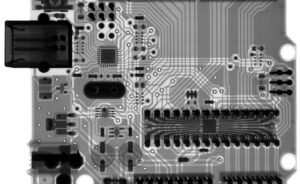How Artificial Intelligence Can Revolutionize Science
Artificial Intelligence (AI) has rapidly become a game-changer in various industries, transforming the way we live and work. In the realm of science, AI has the potential to revolutionize research and discovery, accelerating progress and deepening our understanding of the world. By leveraging the vast capabilities of AI, scientists can reinforce their efforts and tackle complex challenges more effectively than ever before.
Key Takeaways:
- Artificial Intelligence (AI) has the potential to revolutionize scientific research.
- AI can accelerate progress and improve our understanding of the world.
- Scientists can leverage the capabilities of AI to tackle complex challenges more effectively.
The Power of AI in Scientific Research
AI empowers scientists to analyze vast amounts of data quickly and efficiently, allowing them to uncover patterns and insights that could otherwise take years to discover. By using advanced algorithms, AI systems can process and interpret complex datasets at a speed unachievable by humans alone. *This capability has the potential to drive groundbreaking discoveries in various scientific fields, from genomics to climate science.
Furthermore, AI can support scientists in experimental design and optimization. By simulating different scenarios and running thousands of virtual experiments, researchers can identify the most promising avenues for further exploration. *AI algorithms can also predict the outcomes of experiments, saving time, resources, and reducing the need for trial and error. This enables scientists to focus their efforts on the most promising research paths, enhancing efficiency and increasing the likelihood of success.
Transforming Scientific Publishing
In addition to assisting with research, AI can greatly impact the process of scientific publishing. With millions of academic papers published each year, it can be challenging for researchers to find and navigate relevant information. *AI-powered systems can analyze and organize scientific literature, extracting key information and summarizing research findings. This not only saves time but also helps researchers stay up to date with the latest developments in their field.
Moreover, AI algorithms can identify potential research collaborators by analyzing scientific publications, citations, and author networks. By connecting researchers with complementary expertise, AI facilitates collaboration and accelerates the pace of scientific discoveries. *This can lead to interdisciplinary breakthroughs and foster innovation in areas where connections might not have been apparent.
The Ethical Implications
While AI presents immense opportunities for scientific advancement, it also raises important ethical considerations. *As AI systems take on more prominent roles in research, it becomes crucial to ensure transparency, accountability, and fairness. Scientists must carefully address biases and potential risks associated with AI algorithms. Additionally, the responsible use of AI in science should prioritize maintaining human control and safeguarding against unintended consequences.
Three Tables: Interesting Data Points
| Research Field | Potential Impact of AI |
|---|---|
| Genomics | Identifying genetic mutations and personalized medicine. |
| Climate Science | Improved weather predictions and climate modeling. |
| Drug Discovery | Accelerating the development of new drugs and treatments. |
| Application | Benefits of AI |
|---|---|
| Literature Analysis | Faster access to relevant research and summaries. |
| Author Network Analysis | Identifying potential collaborators and interdisciplinary connections. |
| Automated Peer Review | Streamlined review processes and efficient publication timelines. |
| Concerns | Proposed Solutions |
|---|---|
| Bias in AI algorithms | Regular auditing and diverse training datasets. |
| Human control and decision-making | Setting clear boundaries and ensuring human oversight. |
| Data privacy and security | Implementing robust security measures and anonymization techniques. |

Common Misconceptions
Misconception 1: Artificial intelligence will replace human scientists
One common misconception about the potential of artificial intelligence in science is that it will completely replace human scientists. However, this is not the case. While AI can perform tasks at high speeds and handle large amounts of data, it lacks the creativity, intuition, and critical thinking abilities that are essential in scientific research.
- AI can assist scientists in data analysis and processing.
- Human scientists are still needed to design experiments and interpret results.
- Collaboration between AI and human scientists can lead to breakthroughs in research.
Misconception 2: Artificial intelligence will make science error-free
Another common misconception is that artificial intelligence will eliminate errors in scientific research. While AI can detect patterns and make accurate predictions, it is still susceptible to biases and limitations in the data it is trained on. Additionally, AI models are not infallible and can make mistakes, especially when dealing with complex or novel problems.
- AI can help identify and reduce errors in data analysis.
- Human oversight is crucial to catch errors made by AI systems.
- A combination of AI and human judgment can minimize errors in scientific research.
Misconception 3: Artificial intelligence can solve all scientific problems
There is a misconception that artificial intelligence has the ability to solve all scientific problems. While AI can be highly effective in certain domains, it may not be suitable for all areas of scientific research. Some scientific problems require a deep understanding of complex systems, which AI algorithms may not possess.
- AI is best suited for tasks that involve large-scale data analysis.
- Human scientists provide the necessary domain expertise for solving complex problems.
- A combination of AI and human intelligence can tackle a wider range of scientific challenges.
Misconception 4: Artificial intelligence in science is solely about automation
Some people mistakenly believe that the role of artificial intelligence in science is solely focused on automation. While automation is one aspect, AI also has the potential to enhance scientific discovery by assisting scientists in hypothesis generation, experimental design, and data interpretation.
- AI can help scientists identify patterns and trends in large datasets.
- AI algorithms can generate new hypotheses for scientific inquiry.
- Human scientists can leverage AI tools to accelerate the scientific discovery process.
Misconception 5: Artificial intelligence will make scientific discovery obsolete
Lastly, there is a misconception that artificial intelligence will render human scientists and the process of scientific discovery obsolete. However, AI is not a substitute for human curiosity, creativity, and the desire to explore unknown realms of knowledge. The collaboration between human scientists and AI can lead to groundbreaking discoveries that neither entity could achieve alone.
- AI can assist scientists in uncovering new patterns or correlations in data.
- Human scientists are essential for formulating hypotheses and conducting experiments.
- The synergy between AI and human scientists can revolutionize scientific discovery.

Revolutionizing Gene Editing with AI
Advancements in artificial intelligence (AI) have led to significant breakthroughs in the field of gene editing. This table highlights various AI techniques employed in gene editing research and their impact on scientific advancements.
| AI Technique | Description | Impact |
|---|---|---|
| Crispr-Cas9 | AI-powered gene-editing tool | Precise modification of DNA sequences |
| Machine Learning Algorithms | Analyze large genomic datasets | Identify disease-causing mutations |
| Deep Learning | Extraction of patterns from genomic data | Accelerate gene discovery |
Enhancing Drug Discovery with AI
The utilization of AI in drug discovery has transformed the pharmaceutical industry. This table showcases various AI-driven approaches employed in drug development and their impact in revolutionizing scientific research.
| AI Approach | Application | Impact |
|---|---|---|
| Deep Neural Networks | Virtual screening of compounds | Reduced timelines for drug discovery |
| Quantum Computing | Simulating drug interactions | Accelerated development of personalized medicine |
| Reinforcement Learning | Optimization of drug dosages | Improved treatment outcomes |
AI in Robotics: Advancing Automation
Artificial intelligence has given rise to remarkable advancements in the field of robotics, transforming various industries. This table showcases how AI technologies have revolutionized automation.
| AI Technology | Application | Impact |
|---|---|---|
| Computer Vision | Sensing and recognition in robots | Precision in assembly line operations |
| Natural Language Processing | Voice-controlled robots | Improved human-robot interaction |
| Machine Learning | Autonomous decision-making | Efficient and adaptive robotics systems |
AI in Climate Science: Modeling Climate Change
Artificial intelligence plays a vital role in understanding climate change patterns and predicting future scenarios. This table displays different AI applications contributing to climate science.
| AI Application | Description | Impact |
|---|---|---|
| Machine Learning Models | Analyze climate data and patterns | Improved climate predictions |
| Data Visualization | Visual representation of climate data | Enhanced understanding of climate phenomena |
| Optimization Algorithms | Optimize renewable energy systems | More efficient utilization of clean energy |
AI Revolutionizing Healthcare
The integration of AI into healthcare systems has brought about transformative changes. This table highlights key areas where AI is revolutionizing healthcare.
| AI Application | Use Case | Impact |
|---|---|---|
| Medical Imaging | Automated analysis of medical images | Improved diagnostic accuracy |
| Virtual Assistants | AI-powered healthcare chatbots | Enhanced patient engagement |
| Genomic Analysis | AI-based prediction of genetic diseases | Early detection and personalized treatment |
AI in Astrophysics: Unraveling the Universe
AI has played a significant role in advancing our understanding of the vast universe and unraveling its mysteries. This table provides examples of AI applications in astrophysics.
| AI Application | Description | Impact |
|---|---|---|
| Image Processing | Analyze telescope images | Identification of distant galaxies and celestial objects |
| Data Mining | Extract information from astronomical databases | Identification of rare celestial events |
| Artificial Neural Networks | Predict properties of astronomical objects | Improved understanding of cosmic phenomena |
AI Empowering Agriculture
Artificial intelligence has the potential to revolutionize agriculture by improving efficiency and sustainability. This table highlights AI applications in the agricultural sector.
| AI Application | Use Case | Impact |
|---|---|---|
| Precision Farming | Optimize water and fertilizer usage | Increased crop yield and resource management |
| Sensor Networks | Monitor crop health | Early disease detection and targeted interventions |
| Robotics | Automated harvesting and planting | Improved efficiency and reduced labor costs |
AI in Education: Personalized Learning
Through personalized learning and intelligent tutoring systems, AI has transformed education. This table demonstrates the application of AI in the education sector.
| AI Application | Description | Impact |
|---|---|---|
| Adaptive Learning Algorithms | Customize educational content | Improved learning outcomes |
| Natural Language Processing | Automated and personalized feedback | Enhanced student engagement and progress tracking |
| Virtual Reality | Immersive educational experiences | Facilitate understanding of complex concepts |
The AI Revolution: Summarizing the Impact
Artificial intelligence has emerged as a groundbreaking force, revolutionizing science across various domains. From gene editing to climate science, AI technologies have enabled scientists to explore new frontiers and achieve remarkable breakthroughs. With the ability to analyze vast amounts of data, optimize processes, and make complex predictions, AI is transforming industries and leading us toward a new era of scientific discovery. Its applications in healthcare, robotics, astrophysics, agriculture, and education are just a glimpse of the vast potential it holds. As AI continues to advance and evolve, its impact on science will undoubtedly revolutionize our world.
Frequently Asked Questions
How Artificial Intelligence Can Revolutionize Science
How can artificial intelligence impact scientific research?
In what scientific areas can artificial intelligence be used?
How can AI help in drug discovery?
Can AI assist in understanding complex biological systems?
Is AI capable of making scientific discoveries on its own?
What are the challenges in adopting AI technologies in scientific research?
Are there any risks associated with using AI in scientific research?
How can AI contribute to environmental research?
Can AI be used in space exploration?
Is AI a replacement for scientists and researchers?




